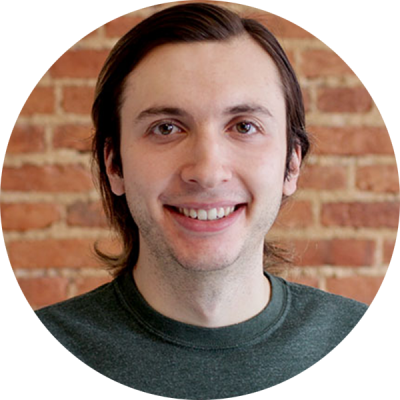
David Ottenheimer
In the lab of Patricia Janak, Ph.D., I studied how neurons in the ventral pallidum, a brain region considered part of the basal ganglia, respond when rats receive highly palatable food rewards. Historically, the ventral pallidum has been described as a relay station for reward-related information leaving the nucleus accumbens, a more widely studied region known to be important for controlling the seeking and consumption of rewards. In my research, I found that the ventral pallidum has very pronounced responses to rewards that reflect the rats’ relative preference for each available reward. These responses were stronger than in nucleus accumbens and also preceded the similar activity there. This finding contributes to building evidence that the ventral pallidum is important for processing rewards above and beyond its role as an output of the nucleus accumbens. I further found that the neural activity in the ventral pallidum tracks rats’ preferences as they change over time, and this activity guides their choice behavior. These findings should increase interest in studying the ventral pallidum in order to understand how our brain processes information about the rewards we consume and how that information impacts what rewards we choose to consume in the future.
Questions & Answers
Why did you choose Johns Hopkins for your work?
In addition to a strong neuroscience community broadly, Johns Hopkins has a great group of scientists interested in how the brain processes rewarding stimuli, like food, which is the topic I wanted to study in graduate school. That made applying to the neuroscience Ph.D. program here, an obvious choice for me. When I visited, I immediately noticed the collegiality and mutual respect among the faculty and students in the neuroscience department, and that made Johns Hopkins my top choice.
What does receiving this award mean to you personally and professionally? Do you have any connection with the particular award you received?
Most aspects of a Ph.D. are very insulated. It’s just you, the data, your adviser and a few people around you. Being recognized by the broader community is a huge honor. The previous recipients of The Michael A. Shanoff Award are an inspirational and accomplished group. I am proud to be able to carry on Dr. Shanoff’s legacy in this small way.
What contributed to your project’s success?
I had incredible mentorship from my adviser, Dr. Janak, as well as a former postdoc in the lab, Jocelyn Richard. I can credit their training and the expertise of the entire lab for giving me the best possible platform for success. Many of the most exciting experiment and analysis ideas actually came from discussions with the broader neuroscience community at Johns Hopkins, including fellow students in my program and my thesis committee: Marshall Hussain Shuler, Jeremiah Cohen, and Michela Gallagher. A strong culture of work-life balance and independent working in my lab allowed me to develop the creativity and passion to complete my projects.
What thoughts do you have about Young Investigators’ Day itself, as a celebration of the roles students and fellows play in research at Johns Hopkins?
Students and fellows are often the individuals making the scientific discoveries, so it is very important to recognize their contributions and not just attribute the work to faculty, as is common with scientific awards. I appreciate the opportunity that Young Investigators’ Day provides to honor trainees.
What has been your best/most memorable experience while at Johns Hopkins?
All of the amazing times I shared with my fellow students, including happy hours, retreats, journal clubs, and more, will be the memories I most treasure from this time.
What are your plans over the next year or so?
I finished my Ph.D. in March, and I will continue working in my current lab as a postdoc for a short while. I plan to start a postdoctoral position in a new lab this summer.
Tell us something interesting about yourself.
I have a couple of hobbies that I enjoy because they provide complementary experiences to research. First is running. I can enter a sort of meditative state mentally while running that helps me refocus, and I like being able to have measurable progress as I track my runs. Second is music. Playing guitar or piano and singing is an immersive experience that challenges me to be creative in a way that is totally different from science.